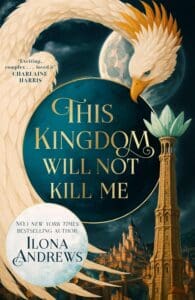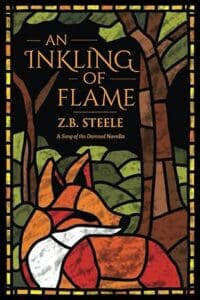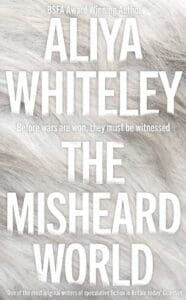
Synopsis
Stephen King’s Holly marks the triumphant return of beloved King character Holly Gibney. Readers have witnessed Holly’s gradual transformation from a shy (but also brave and ethical) recluse in Mr. Mercedes to Bill Hodges’s partner in Finders Keepers to a full-fledged, smart, and occasionally tough private detective in The Outsider. In King’s new novel, Holly is on her own, and up against a pair of unimaginably depraved and brilliantly disguised adversaries.
When Penny Dahl calls the Finders Keepers detective agency hoping for help locating her missing daughter, Holly is reluctant to accept the case. Her partner, Pete, has Covid. Her (very complicated) mother has just died. And Holly is meant to be on leave. But something in Penny Dahl’s desperate voice makes it impossible for Holly to turn her down.
Mere blocks from where Bonnie Dahl disappeared live Professors Rodney and Emily Harris. They are the picture of bourgeois respectability: married octogenarians, devoted to each other, and semi-retired lifelong academics. But they are harboring an unholy secret in the basement of their well-kept, book-lined home, one that may be related to Bonnie’s disappearance. And it will prove nearly impossible to discover what they are up to: they are savvy, they are patient, and they are ruthless.
Holly must summon all her formidable talents to outthink and outmaneuver the shockingly twisted professors in this chilling new masterwork from Stephen King.
Review
First, let’s acknowledge that I am about the last person on earth left to weigh in on Holly, Stephen King’s latest novel, a book that drew the ire of the right for its preachiness regarding Covid and Trump, but not only the right.
My own negative reaction to Holly‘s Covid talk was mostly aesthetic, seeming to slow down the action with dialogue that simply never rang true. I have never once had a conversation with a stranger about the specific brand of my vaccine, yet this is the constant subject of conversation here. So I’m not averse to Holly taking place during the Covid era and acknowledging that fact, so much as I’m wishing that the book contained more real people responding to the Covid era in more authentic ways.
There. Now we’ve dispensed with that: Holly isn’t a great book. Would my rating be higher if it were by someone other than Stephen Frickin’ King? Perhaps. But the fact is that this does not read like the work of a master at the top of his craft.
While I appreciate King trying to move outside of his comfort zone, as he has with the other books in this series (leaning toward the mystery/thriller side of things), nothing quite gels here.
Holly is given a who-dunnit structure, but we know from the first both who and how it got done. In fact, we spend a good third of the novel with the killers, a pair of batty old retired professors with a taste for human flesh. This hamstrings the novel in a couple of ways.
First, these villains are essentially cartoons. King almost always delivers the character work, but these guys are two dimensional in the extreme. And, as is customary in the King-verse, the baddies are also raging racists and xenophobes, adding to the clichéd portrayal. And it doesn’t need to be so. King has situated these characters well within the high liberal university set, so he had every opportunity to create a chilling portrait of the high minded liberal who says the right things and has their little checklist of proper beliefs, while they also happen to occasionally kill someone from the neighborhood and eat their liver. That would at least offer the opportunity for some campy fun. These people aren’t fun, and worse, they’re not scary.
The bigger problem with spending so much of our time with the baddies it that it absolutely drains any sense of tension out of Holly’s investigation. It’s tedious watching someone move down the line putting the pieces together when we, the reader, already know the whole picture. I’m sure there’s a way to inject this kind of plot with real tension or at least some dramatic irony, there’s none of that here. In fact, King appears to be scrabbling for challenges to complicate that plot, just so that there’s some sort of tension. The fact that we know the missing girl who starts the whole investigation is already dead really doesn’t help.
Along the way, and almost completely outside of the orbit of Holly‘s central plot, lies the skeleton of a story that might have been. Barbara Robinson, the teenage sister of Holly’s partner, strikes up a friendship with a ninety-nine year old poet, who takes her under her wing and shepherds her through a brief but profound apprenticeship. This storyline has all of the hallmarks of a great King narrative: young protagonist, a healthy dose of sentimentality, room to hold forth on the art of writing, and some dialogue that’s actually alive.
Unfortunately, this plot has absolutely nothing to do with Holly, and it could have been excised completely while changing not one page of the rest of the novel. In that way, it sits beside a subplot about Holly’s mother stealing her inheritance before dying of Covid. Cool, cool. So what?
In the end, for various reasons, Holly is the one thing that a Stephen King book has no right to be: tedious.








Leave a Reply